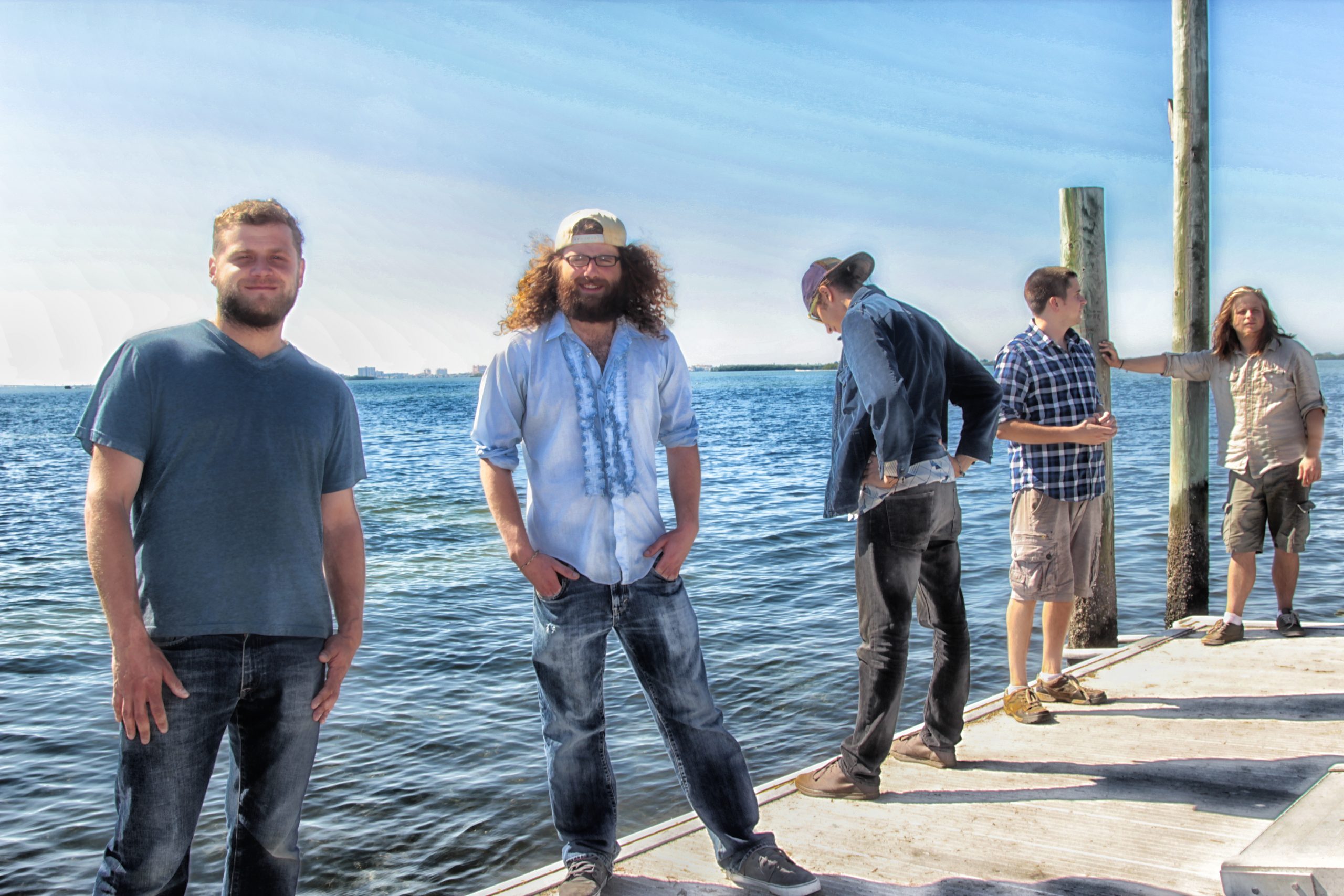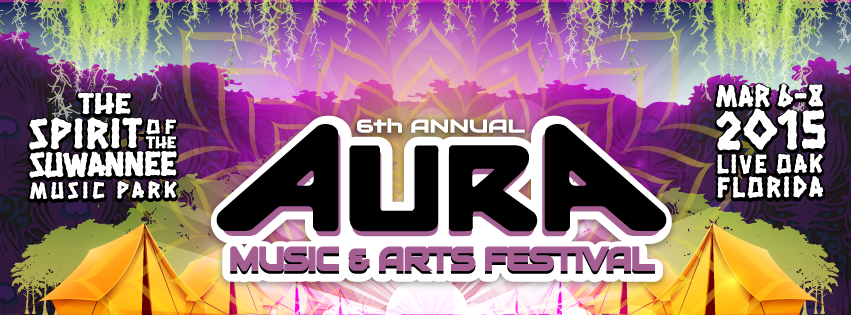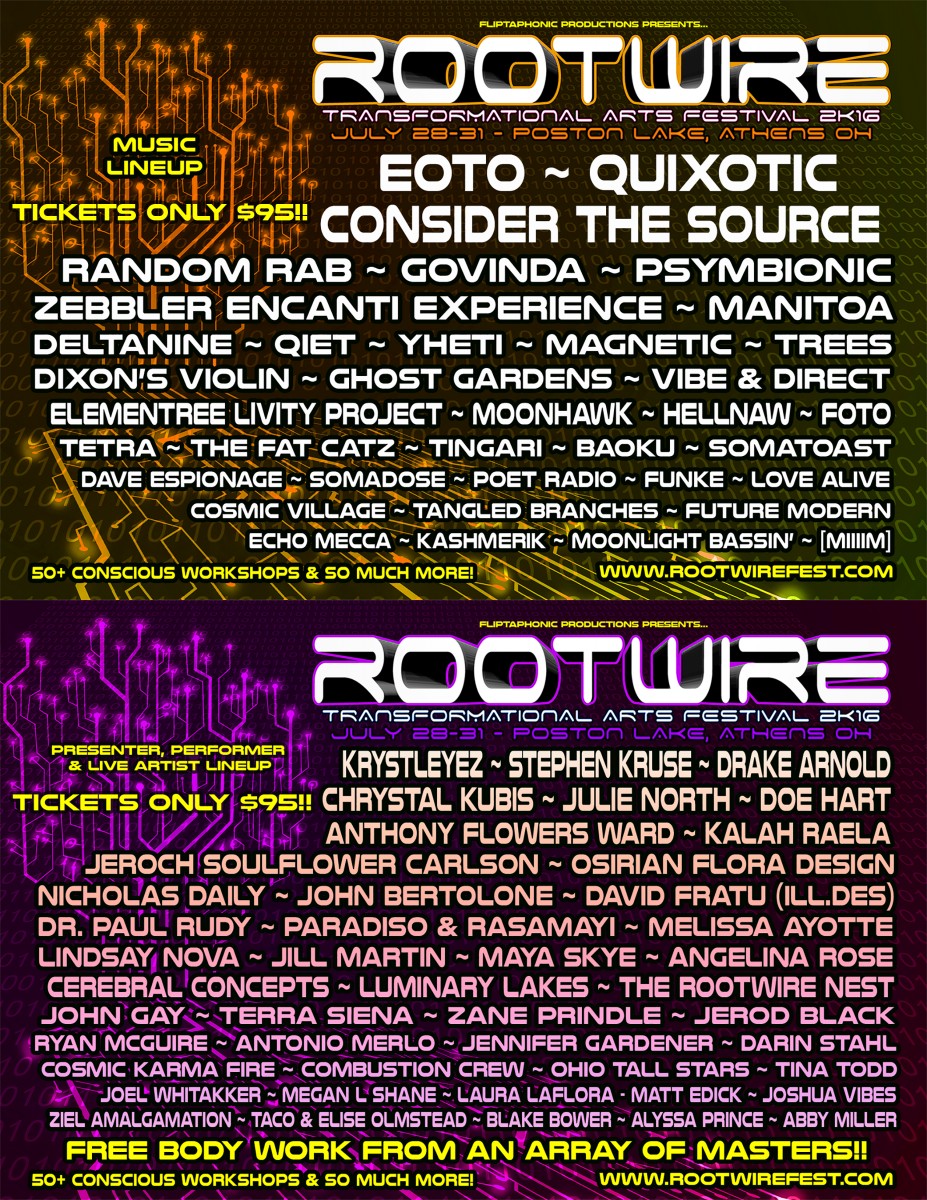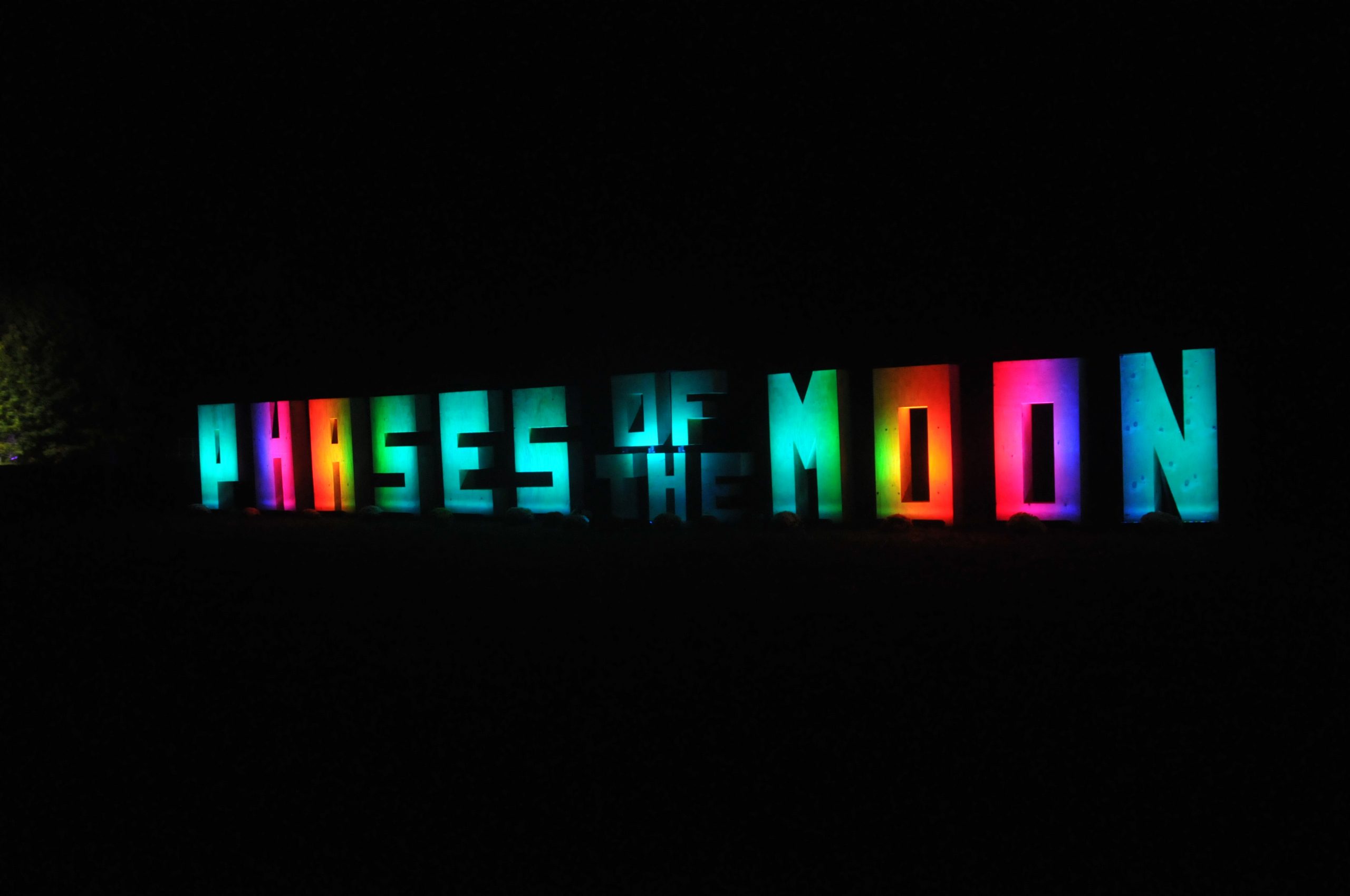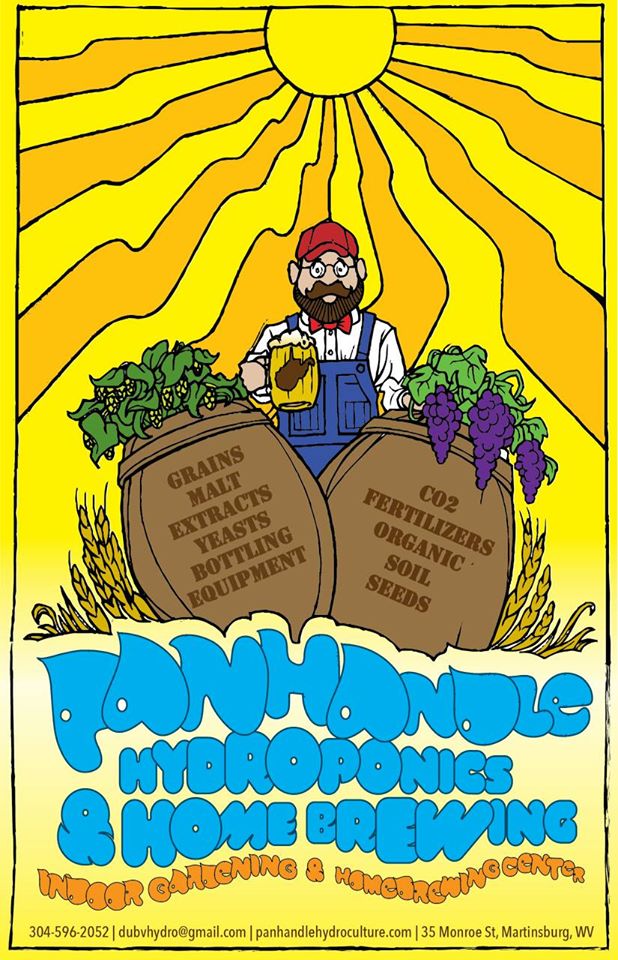Exclusive Interview with Jahman Brahman
by Taco Olmstead
Conducted July 2014
How did you get the name Jahman Brahman?
Justin: We were in an Eastern Religion class at Ohio State and we had this guy that basically looked like Gandalf on the stage talking to us about “Brahman”. He passionately lectured to the class on how we are all universally connected, and that we are all part of a larger cosmic order. That everything is One. We felt that was an important thing to know at the time, and wrote it down. Sidetracked in our own conversation about music and starting a band, we scribbled “Jahman” in front of it… We never really went through many band names, the first one kinda just stuck.
Rowdy: As it’s developed it’s taken on new meanings, more developed ones. We want to achieve “brahman” on stage musically and also achieve brahman with the crowd.
That’s so awesome, I’m so glad I got to ask you that.
Justin: We get so many different interpretations and pronunciations like “Jammin Brammin,” “Ja-MAN Bra-MAN.” Sometimes I’ll say “The name is Jahman Brahman,” and they’ll be like “John Bramingham? Nice to meet you!” (Laughter)
Rowdy: And it’s not reggae, remember that.
That should be the name of your next album actually “This is not a reggae band.” What genre do you consider your music to be, and how did you come to play this style of music?
We have dubbed our style as Shred n’ Flow. We play organic rock and roll music aimed to move, motivate, and inspire. At a very young time in our musical journey we began learning how to improvise together, and through the years the wrong notes finally started to sound right! We basically started learning how to play together from scratch, and with the help of Ekoostik Hookah, The Werks, and Papadosio we started becoming involved with Ohio’s amazing festival scene. The rest is history!
So you guys are headed to Sunshine Daydream for Treehuggers Ball, what’s after that?
Casey: Tribal Connection at Shawnee Caverns.
Rowdy: We have a long history with Shawnee Caverns, actually. That’s where we learned that if you don’t treat the land right then it won’t treat you right. We used to leave our cigarette butts there and then we’d get flat tires and weird things would happen.
Isn’t that an old Indian grounds or something?
Nathan: Yeah, that’s why we think these crazy things would happen. We used to be a little more careless.
Rowdy: We now want to achieve Brahman with the places that we play as well. We’ve learned many of those lessons at Zane Shawnee Caverns, and we are excited to get back and experience more of it.
Now with you guys, being young, I remember when I was in the jam scene, the college kids were a group of people that jam bands really marketed to. Do you think it still is important today?
Casey: It’s hard to say because we are past that point with our ages now, but we still find ourselves in college towns all of the time. We’re always asking ourselves how can we connect with these new faces, and open this scene up a bit. As opposed to when we first started up, everybody who was at the shows were people who we knew from college and from that area.
Justin: There is all of this insane talent coming up that is really humbling to me as an artist. Early twenty something’s ripping the guitar, and using their voices effortlessly. Raw talent that just teaches you so much just from listening and learning. Bands like Peridoni, Pleasant Drive, and Electric Orange Peel are just a few that have reminded me of the real reasons I play music. You can just feel that there is a new generation of bands rising up that also believes in making social change. We want to join them.
Rowdy: I think for a minute maybe college crowds went away because they were just so entrenched in a different kind of music, and they weren’t even interested in bands, but it’s coming back. Younger people are wanting to see bands again.
Yeah I noticed that. We went to State College a while ago and wanted to go out and find some music. We walked all over that town and found zero live music on a Friday night. I was like, how can there be no live music in a college town? This was like, four or five years ago.
Rowdy: But that’s when I think people were starting to get a big boner for EDM. Now that’s kind of tapered off a little bit, it’s still huge, though.
Nathan: You find people all of the time that go to festivals who are brought there solely for a few large EDM acts, but may have had no idea who was on the rest of the lineup. When I talk to them, it seems they are so shocked they never knew about a certain band, or feel they were missing out the whole time. I love watching this melting pot of musical taste. Even though the big EDM names on the list are bringing people out, the fans are still open to new music.
Rowdy: The large majority of the marketing dollars are going into these EDM acts currently. It’s hard for people to make an educated choice when they’re being bombarded with this one type of music.
A lot of people on this scene were brought in by EDM and now enjoy jam music. They talk about their EDM days like “back when I didn’t know good music.”
Rowdy: We don’t like to do that; we don’t like to put anyone down just because it’s not what we do. Electronic dance music has its purpose and it can be great, and some people do it really well.
So Rowdy, would you consider yourself a bridge-builder?
Rowdy: Well, considering the fact that brahman, means harmony amongst everything, I consider all of us bridge builders. We try to eliminate the word “hate” from our vocabulary, we consider that a four letter word. We went to this festival in SC where there was this reggae band, and you wouldn’t have looked at him and thought that he was a hardcore Rastafarian, but he made this speech about hate being a four letter word and it really stuck with all of us.
Justin: (in Rastafarian accent) H-A-T-E! Let’s eliminate it from our vocabulary, mon!
Rowdy: But yeah, we want to eliminate this word “hate” because there’s room in this scene for everyone, and if you have positive intentions, then do whatever feels good to you.
So does this mean I’m not allowed on the tour bus because I hate Luxembourgians?
Rowdy: Yeah, why aren’t you just part of France, man? (Laughter) No, we don’t dismiss other people that hate, we love them, too.
Do you feel like Asheville has embraced you guys?
Justin: I feel like they have. I don’t go out in it enough, because we are on the road so much that when we are there we stay at home. But there’s always open jams going on and stuff.
Rowdy: I pass out flyers at bars and shops there and people all recognize who we are, they say “Hey, you guys are still killin’ it, you’ve been at it for a while now,” which is nice.
So having been “killin it” as long as you have, how do you think your musical style evolved over the years?
Justin: I feel a lot of the music we made in the beginning was completely improvised, but was aimed more at creating the time and space where all of our friends would get together. Once people started showing up at shows we had a whole different place to draw energy from, and we could see how each beat made people feel. Our crowd has always been very honest with us and offered a lot of helpful advice when we were starting out, and still today. This helped us take all of the jams where we didn’t necessarily know what we were doing, and turn them into songs we that we could keep forever.
Rowdy: There are so many great bands out there that have studied music and learned things from geniuses teaching them, that we are going to have to compare by the vibe that we put out there and our message, and our songwriting. Justin has a good affinity for writing a good song.
Here’s the thing about music theory, is complex music doesn’t take off well.
Rowdy: We talk about that, too. That’s true.
Casey: We talked to Lee from Snarky Puppy about that, about how on the jam scene you have to carry your music with your personalities, he had this concept of an accessible jazz band. How it’s going to work for us is making people fall in love with each and every one of us, more than our music knowledge.
So what you’re saying is we need to get you guys in Teen Beat.
Nate: Like a relationship quiz? Like “Which Jahman Brahman member are you most likely to date?” The Jahman Brahman love quiz.
Something that I’ve talked to bands about using for promo is to pick a guest of the band for certain dates. You make it into a contest, and basically the person gets to hang out with the band before the show and post show.
Rowdy: That might be a good way to make someone not like the band anymore. But I love the idea! (Laughter) We just need more room in the truck! We would love to bring more people on tour with us!
They’re just a guest and they get treated to like, a dinner, and just hang out. When you have a fan, that’s a way to take someone who’s a fan into a ravenous fan!
Justin: It’s all about taking that relationship to the next level! People may support your music like a “fan” does, but I believe there is always a deeper meaning to why people meet. You have to sit there and talk all night sometimes to get to the good stuff! We are all about meeting people, and figuring out how we are all connected.
Rowdy: Sometimes it feels like it’s a one way street, like, we’re coming to a city that we haven’t been to in a while, we’ll call people up and say “We’re coming to town, please come out!” Sometimes we forget to tell people about a show, but we really try to keep up with every single person we meet. We don’t want it to be that we only care about your life when it affects our life. We want to work together to throw a truly amazing night of music!
I was talking to my friend Chuck who got a phone call that was just “Hey, you want to go hiking?” and he said he misses those phone calls. He says, no one calls me anymore and says “Do you want to catch a movie?” People know that you’re on the road and don’t waste their time, they know that you’re busy. Or they know that you’re just getting home from being on the road and you don’t want to do anything. So that leads into another question, how do you guys feel about people talking in front of the stage during your set?
Nathan: I think we want people to interact, but at the same time we want people to pay attention. Sometimes it can be harder when you write slower or quieter songs to get them to really listen, If people are talking during those songs I’ll sometimes question myself, are we not doing something interesting enough to hold their attention?
Justin: But in the end, our intention is to create a space for people to interact. We know everyone will be listening when the energy is right. I feel like when I started listening to music in this scene, one of my favorite parts of it was that I was meeting people in the crowd, and if that kind of thing is happening I feel it! But it’s always good when everyone is at one with the music. Those are the memorable parts of a set.
Rowdy: It all depends on your motivation and what you want from the people coming out to the show. Do you want them to be impressed by your skills or have an experience that transcends all of that?
Have you ever considered having a Bruce Springsteen/Courtney Cox moment where you pull a girl out of the crowd onto the stage and have them dance with you?
Rowdy: My boss is a fan of Springsteen and we’ve been talking about doing something like that. We wanted to do it where we ask if someone in the audience can play an instrument pretty well and asking them to get on stage with us and jam. We have been known to bring up some random rappers and singers in the past at some of our smaller shows!
Nate: We did a show in Kentucky once where there was five of us on stage, and there were six people in the crowd, and turns out one guy could play the trumpet, so he got on stage and played, and then there were six people on stage and five in the crowd. (Laughter) We tipped the balance!
So how is that as a band, when you look out and there’s not much of a crowd?
Justin: It used to be hard but anytime you are in a new place, you have to make friends. We have met some of our most loyal people through small shows. I think this makes them feel the urgency to get behind you, and help the next show turn out better! It is all a work in progress we’ve realized.
Casey: To me, if the sound on stage is good, it doesn’t matter. If I’m not having a good time, if the tone isn’t right, then I’m not happy. There was this one guy that told us even if there is nobody there, as long as you slay it and bring the fire, regardless of how many people are out there, that is how you can gauge if you’ve had a good night.
Rowdy: Keith from The Mantras said something like that, he said anybody can play a good show in front of a thousand people, but if you’re in front of ten people can you still play a great show? You can’t take any time for granted that you get to play with your band. That is a gift that you were given, not everyone gets a band to play with. So those nights are even more exploratory because you get to do whatever you want on that stage!
Yeah, it’s essentially a paid rehearsal.
Something else, too, is you never know who is listening in the crowd. They don’t care how many people are there; they just want to listen to your music. It could be your future wife! Or just someone who want to help! You just never know who is out there!
The next big news for you guys is the album coming out.
Rowdy: “Live and Well, Flaws and All” is the name of it.
How long did it take you guys with the songwriting process and the recording?
Rowdy: It’s a combination of songs from a live show into one album that’s really special. Our studio engineer that did our first two albums, he tracked everything, and then he mixed it, and we’re having it mastered currently by somebody who works at the Columbus symphony. So it’s all from one night, but we picked and chose what tracks we wanted on the album.
So it’s a live album and people get to hear how you actually sound.
Justin: Yeah, they get to hear how we sound right now, because our CDs are so old at this point.
Rowdy: Even now this doesn’t seem that fresh because I’ve added, like, six different toys on the drum kit since then.
Justin: I played a brand new Parker guitar on it, I had just gotten a new guitar that night.
Rowdy: It’s still a great representation of where we currently are as a band.
Justin: It’s way better than we could ever do in a studio, and way more efficient. Like we did that in one night! When we did a studio album, the first one we did in nine months. Not all in the studio, but it took nine months getting it done
Rowdy: So then the project right there at that point is already nine months old, and then you add on the years and that’s the last thing we have to represent ourselves.
Justin: I’m ready to get back in the studio, personally. Andy Sartain has helped us all the way through, he knows us really well and I like working with him.
For me as a jam fan, I always felt like studio albums with jam bands were disingenuous, because they were making this polished and perfect product that is incredibly hard to emulate live. The bottom line is, you’re not going to be able to isolate the instruments and eliminate the background noise and make it sound perfect.
Rowdy: Unless you’re Kings of Leon or Bastille who sound exactly like the album when they play live. I’ve heard Joel from Umphrey’s talk about this, and how it’s two different monsters, there’s playing live, but then a studio album is totally different. If you’re great songwriters then you can go in and cut eleven three-minute songs, and then you have an album.
Justin: For me personally, I want to be able to tame both of these monsters! Putting out great studio albums, but also giving our fans something high quality to listen to while we are working on it! Always have fresh material for people to listen and watch!

